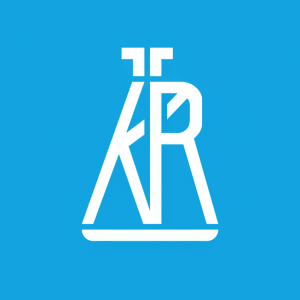Kamada Announces Launch of a Comprehensive Post-Marketing Research Program for CYTOGAM®
Rhea-AI Summary
Positive
- Revenue from CYTOGAM reached $22.5 million in 2024, growing 31% year-over-year
- Recent study showed CYTOGAM has 4-fold higher anti-CMV antibodies than regular IVIGs
- FDA manufacturing approval obtained in May 2023
- Comprehensive research program with 10 studies could expand product utilization
Negative
- None.
News Market Reaction – KMDA
On the day this news was published, KMDA gained 0.75%, reflecting a mild positive market reaction.
Data tracked by StockTitan Argus on the day of publication.
- Program Aimed at Generating Key Data in Support of the Benefits of CYTOGAM® in the Management of Cytomegalovirus (CMV) in Solid Organ Transplantation
- A Total of 10 Studies will be Conducted in Collaboration with Leading U.S. Physicians, Primarily as Investigator-Initiated Studies (IIS)
- Results of the Planned Studies are Expected to be Published and/or Presented in Peer Reviewed Industry Journals and Medical Meetings in the Coming Years
REHOVOT, Israel, and HOBOKEN, N.J., May 05, 2025 (GLOBE NEWSWIRE) -- Kamada Ltd. (NASDAQ: KMDA; TASE: KMDA.TA), a global biopharmaceutical company with a portfolio of marketed products indicated for rare and serious conditions and a leader in the specialty plasma-derived field, today announced the launch of a new post-marketing research program aimed at generating key data in support of the benefits of CYTOGAM®, the Company’s Cytomegalovirus Immune Globulin, in the management of cytomegalovirus (CMV) in solid organ transplantation.
The research program, developed in collaboration with leading Key Opinion Leaders (KOLs), is directed at advancing CMV disease management through novel strategies focused on late-onset CMV prevention and mitigation of active CMV disease, exploring alternative dosing strategies, and investigating potential new applications of CYTOGAM. The program also includes research aimed at enhancing the understanding of CYTOGAM’s mechanism of action and its functional properties against CMV and other viruses. Health economic studies to analyze the cost burden of CMV in solid organ transplantation are also planned, along with a clinical practice study to better understand the nuances of current CMV management in lung transplantation.
“CMV disease continues to be a significant risk factor for graft rejection and mortality in organ transplantation, however, for years no material new up-to-date clinical data regarding the benefits of CYTOGAM were published,” said Amir London, Kamada’s Chief Executive Officer. “We believe that the data to be generated through our comprehensive program may demonstrate the various benefits of CYTOGAM in the prevention and management of CMV disease, supporting further product utilization over the coming years. This innovative program highlights our commitment to addressing CMV infection in solid organ transplanted patients through cutting-edge research and collaborations with leading experts in the field. We appreciate the participating thought leaders and their collaboration and support around the design and prioritization of the studies.”
The U.S. Food and Drug Administration (FDA) approved Kamada’s application to manufacture CYTOGAM in May 2023. During the year ended December 31, 2024, Kamada recognized revenues of
Over the past two years, Kamada has engaged KOLs to study and present their ongoing clinical experiences with CYTOGAM. At ID Week 2023, Fernando Torres M.D., Clinical Chief, Division of Pulmonary and Critical Care at University of Texas Southwestern Medical Center, presented the results of his investigator-initiated five-year retrospective cohort study of 325 lung-transplant patients comparing CYTOGAM in combination with anti-viral agents for CMV prophylaxis in high-risk CMV-mismatch to intermediate and low CMV risk lung transplant patients. In their presentation, Dr. Torres and his colleagues concluded that the use of a proactive multimodality CMV prophylaxis, consisting of antivirals and immune augmentation with CMV immunoglobulin, may improve outcomes among high-risk CMV mismatch lung transplant recipients. At the American Transplant Congress in 2024, Jennifer Chow, MD, Transplant Infectious Diseases specialist at Tufts Medical Center, presented the results of an IIS analyzing the stored samples of a previously conducted placebo-controlled randomized controlled interventional study of CYTOGAM prophylaxis that demonstrates the potential anti-viral and disease attenuation effect of CYTOGAM in moderate to low CMV risk liver transplant patients. Recently, in April 2025, Kamada presented the results of internal research comparing the functional properties of CYTOGAM and regular immune globulin intravenous (IVIG)against CMV and other common viruses at the International Society for Heart & Lung Transplantation 2025 Annual Meeting. The study demonstrates that CYTOGAM has 4-fold higher anti-CMV antibodies than regular IVIGs, while also highlighting the polyvalent characteristics of both hyperimmune globulins, such as CYTOGAM, and regular IVIGs, which are not well described in the literature.
About CYTOGAM®
CYTOGAM® (Cytomegalovirus Immune Globulin Intravenous [Human]) (CMV-IGIV) is indicated for the prophylaxis of cytomegalovirus disease associated with the transplantation of the kidney, lung, liver, pancreas and heart. The product is the sole FDA-approved immunoglobulin (IgG) product for this indication.
Important Safety Information
CYTOGAM is contraindicated in individuals with a history of a prior severe reaction associated with the administration of this or other human immunoglobulin preparations. Persons with selective immunoglobulin A deficiency have the potential for developing antibodies to immunoglobulin A and could have anaphylactic reactions to subsequent administration of blood products that contain immunoglobulin A, including CYTOGAM.
Immune Globulin Intravenous (Human) products have been reported to be associated with renal dysfunction, acute renal failure, osmotic nephrosis and death. Patients predisposed to acute renal failure include patients with any degree of preexisting renal insufficiency, diabetes mellitus, age greater than 65, volume depletion, sepsis, paraproteinemia, or patients receiving known nephrotoxic drugs. Especially in such patients, IGIV products should be administered at the minimum concentrations available and the minimum rate of infusion practicable. Agents containing sucrose as a stabilizer (CYTOGAM contains sucrose) have been associated with reports of renal dysfunction given at daily doses of 350 mg/kg or greater.
During administration, the patient’s vital signs should be monitored continuously, and careful observation made for any symptoms throughout the infusion. Epinephrine and diphenhydramine should be available for the treatment of an acute anaphylactic reaction.
Increases in serum creatinine and blood urea nitrogen (BUN) have been observed as soon as one to two days following IGIV infusion. Progression to oliguria or anuria requiring dialysis has been observed.
Immune Globulin Intravenous (Human) products can contain blood group antibodies which may act as hemolysins and induce in vivo coating of red blood cells with immunoglobulin, causing a positive direct antiglobulin reaction and, rarely, hemolysis.
CYTOGAM is derived from human plasma. As with all plasma-derived products, the risk of transmission of infectious agents, including viruses and, theoretically, the Creutzfeldt-Jakob disease (CJD) agent, cannot be completely eliminated.
Minor reactions, such as flushing, chills, muscle cramps, back pain, fever, nausea, vomiting, arthralgia, and wheezing, were the most frequent adverse reactions observed during the clinical trials for CYTOGAM.
Please see full Prescribing Information for full prescribing details.
To report SUSPECTED ADVERSE REACTIONS, contact Kamada at pharmacovigilance@kamada.com or 1-(866)-916-0077 or FDA at 1-800-FDA-1088 or www.fda.gov/medwatch.
About Kamada
Kamada Ltd. (the “Company”) is a global biopharmaceutical company with a portfolio of marketed products indicated for rare and serious conditions and a leader in the specialty plasma-derived therapies field. The Company’s strategy is focused on driving profitable growth through four primary growth pillars: First, organic growth from its commercial activities, including continued investment in the commercialization and life cycle management of its proprietary products, which include six FDA-approved specialty plasma-derived products: KEDRAB®, CYTOGAM®, GLASSIA®, WINRHO SDF®, VARIZIG® and HEPAGAM B®, as well as KAMRAB®, KAMRHO (D)® and two types of equine-based anti-snake venom products, and the products in the distribution segment portfolio, mainly through the launch of several biosimilar products in Israel. Second: the Company aims to secure significant new business development, in-licensing, collaboration and/or merger and acquisition opportunities, which are anticipated to enhance the Company’s marketed products portfolio and leverage its financial strength and existing commercial infrastructure to drive long-term growth. Third: the Company is expanding its plasma collection operations to support revenue growth through the sale of normal source plasma to other plasma-derived manufacturers, and to support its increasing demand for hyper-immune plasma. The Company currently owns three operating plasma collection centers in the United States, in Beaumont Texas, Houston Texas, and San Antonio, Texas. Lastly, the Company is leveraging its manufacturing, research and development expertise to advance the development and commercialization of additional product candidates, targeting areas of significant unmet medical need, with the lead product candidate Inhaled AAT, for which the Company is continuing to progress the InnovAATe clinical trial, a randomized, double-blind, placebo-controlled, pivotal Phase 3 trial. FIMI Opportunity Funds, the leading private equity firm in Israel, is the Company’s controlling shareholder, beneficially owning approximately
Cautionary Note Regarding Forward-Looking Statements
This release includes forward-looking statements within the meaning of Section 21E of the U.S. Securities Exchange Act of 1934, as amended, and the safe harbor provisions of the U.S. Private Securities Litigation Reform Act of 1995. Forward-looking statements are statements that are not historical facts, including statements regarding: 1) program’s ability to generate key data in support of the benefits of CYTOGAM in the management of CMV in solid organ transplantation, 2) Kamada’s ability to conduct 10 studies for the program, 3) the timing of publishing/presentation of the results, 4) successful FDA approval for additional uses of CYTOGAM, and 5) increased utilization of CYTOGAM as a result of positive results from the program or otherwise. Forward-looking statements are based on Kamada’s current knowledge and its present beliefs and expectations regarding possible future events and are subject to risks, uncertainties and assumptions. Actual results and the timing of events could differ materially from those anticipated in these forward-looking statements as a result of several factors including, but not limited to the evolving nature of the conflicts in the Middle East and the impact of such conflicts in Israel, the Middle East and the rest of the world, the impact of these conflicts on market conditions and the general economic, industry and political conditions in Israel, the U.S. and globally, and particularly the effect on establishment and timing of the program, Kamada’s ability to leverage new business opportunities and integrate new product portfolio relating to CYTOGAM, unexpected results of the program, regulatory delays, and other risks detailed in Kamada’s filings with the U.S. Securities and Exchange Commission (the “SEC”) including those discussed in its most recent Annual Report on Form 20-F and in any subsequent reports on Form 6-K, each of which is on file or furnished with the SEC and available at the SEC’s website at www.sec.gov. The forward-looking statements made herein speak only as of the date of this announcement and Kamada undertakes no obligation to update publicly such forward-looking statements to reflect subsequent events or circumstances, except as otherwise required by law.
CONTACTS:
Chaime Orlev
Chief Financial Officer
IR@kamada.com
Brian Ritchie
LifeSci Advisors, LLC
212-915-2578
britchie@LifeSciAdvisors.com








